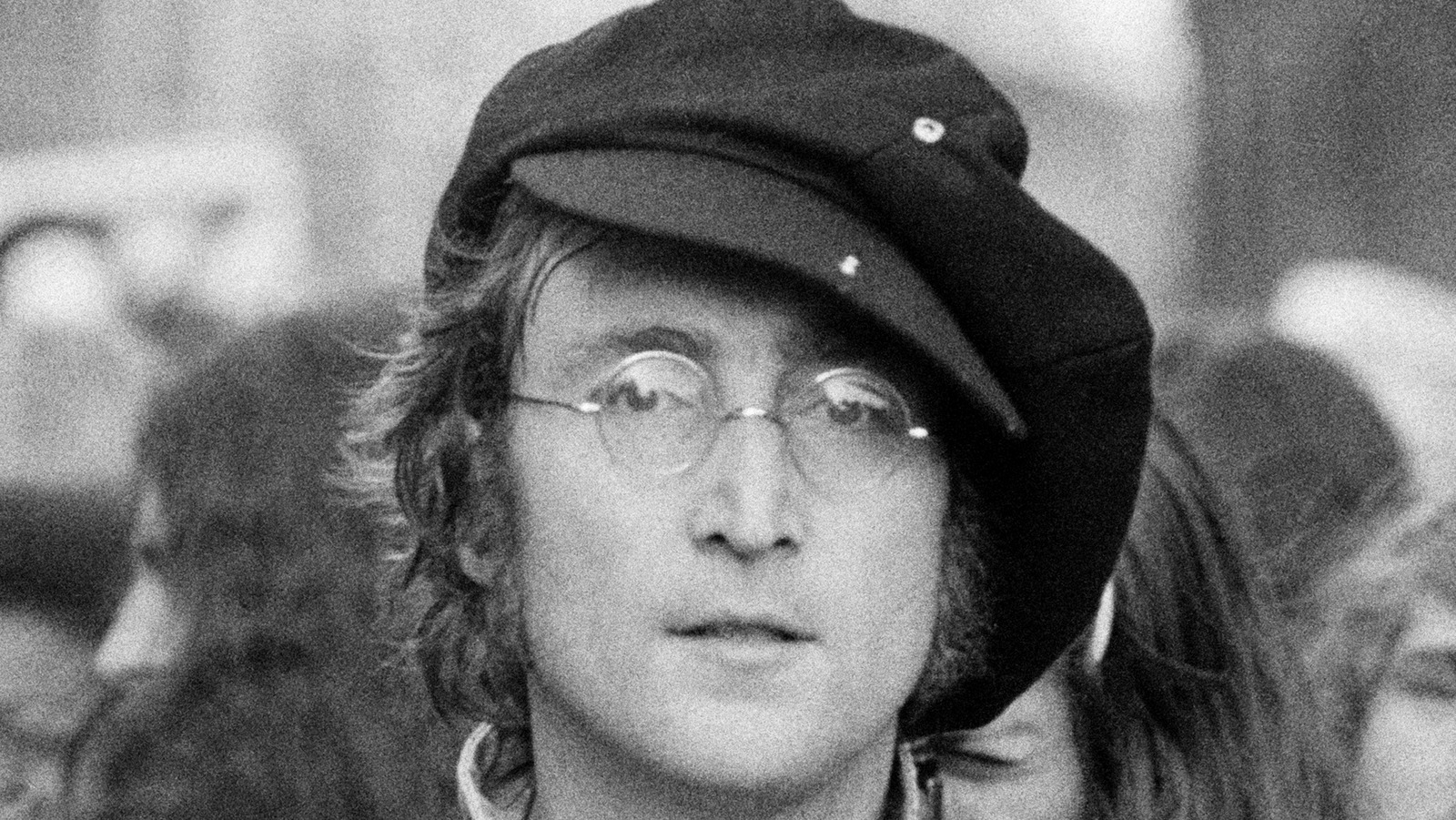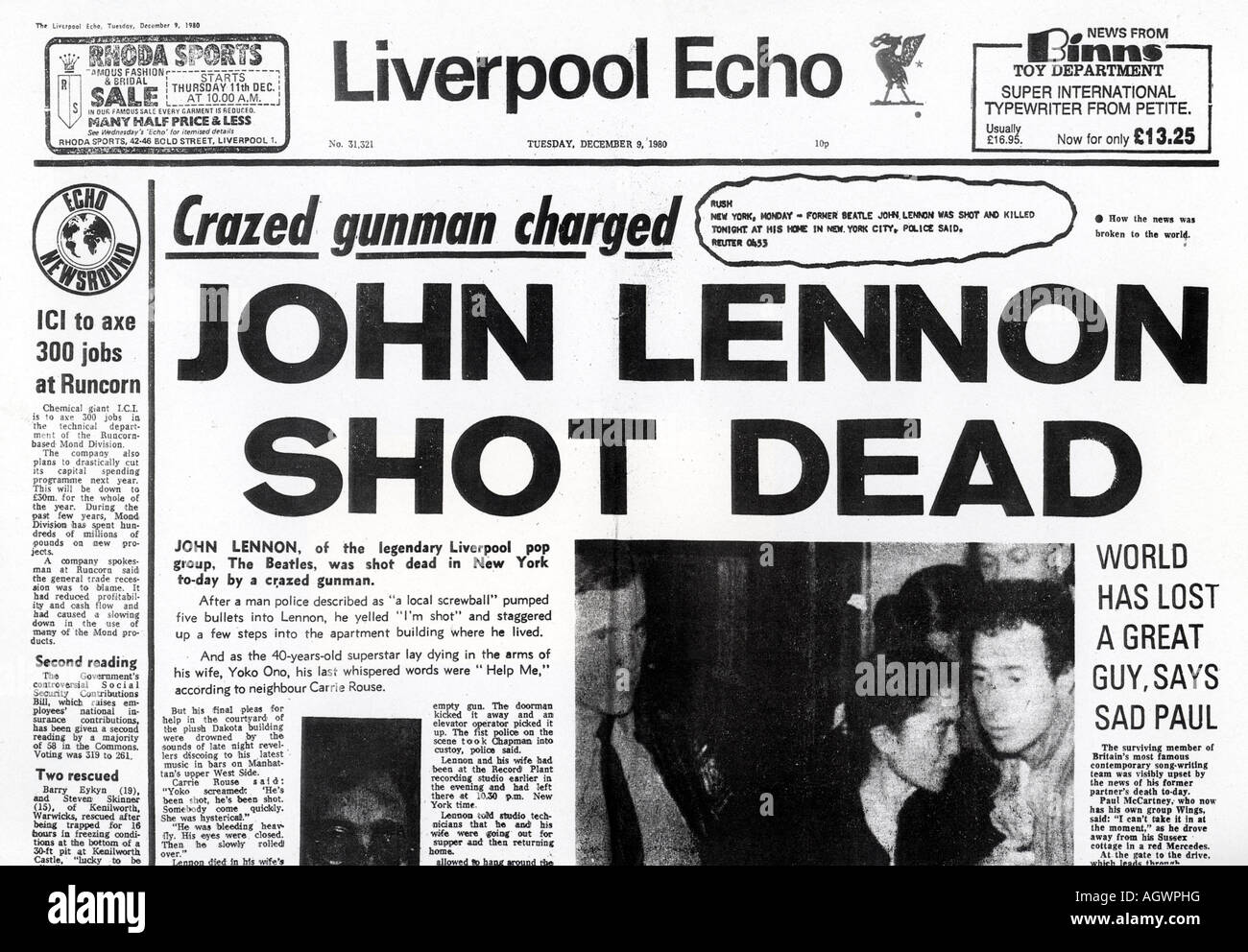So here we are, diving deep into one of the most heart-wrenching moments in music history: the John Lennon autopsy. It’s a topic that brings a mix of sadness and curiosity, but it’s crucial to understand what happened that fateful night in 1980. The world lost an icon, and the details of his passing have been dissected ever since. This is not just about facts—it’s about honoring a legend who left an indelible mark on humanity.
John Lennon was more than just a Beatle. He was a poet, a dreamer, and a voice for peace. But on December 8, 1980, everything changed. As we delve into this story, we’ll uncover the truth behind the autopsy, the events leading up to his death, and why it matters even today. Let’s face it, folks—this isn’t just history; it’s a reminder of how fragile life can be.
Now, if you’re here, chances are you want answers. What exactly happened during the autopsy of John Lennon? Who was responsible for performing it? And most importantly, what did they find? We’re about to explore all of that and more. So buckle up, because this is gonna be a ride filled with emotion, facts, and a touch of nostalgia.
Read also:Kirsten Too Sweet Nude The Untold Story Behind The Viral Sensation
Table of Contents
- John Lennon Biography
- The Autopsy Details
- Cause of Death
- Forensic Findings
- The Investigation
- Timeline of Events
- John Lennon's Legacy
- Impact on the World
- Conspiracy Theories
- Conclusion
John Lennon Biography
Before we dive into the John Lennon autopsy, let’s take a moment to remember the man behind the legend. Born on October 9, 1940, in Liverpool, England, John Lennon was destined to change the world. He wasn’t just a musician; he was a revolutionary thinker and a symbol of hope for millions.
Early Life and Career
Growing up in post-war England, Lennon’s childhood wasn’t easy. Raised by his aunt Mimi after his parents split, he found solace in music. His first band, The Quarrymen, eventually evolved into The Beatles, and the rest, as they say, is history. The Beatles became a global phenomenon, and Lennon’s wit, charm, and songwriting prowess made him stand out.
Here’s a quick look at some key facts:
| Full Name | John Winston Ono Lennon |
|---|---|
| Birth Date | October 9, 1940 |
| Place of Birth | Liverpool, England |
| Occupation | Singer, Songwriter, Activist |
| Spouse | Yoko Ono |
The Autopsy Details
Alright, let’s get into the nitty-gritty of the John Lennon autopsy. After Lennon was shot outside the Dakota building in New York City, he was rushed to Roosevelt Hospital. Despite the efforts of medical staff, he succumbed to his injuries within hours. The autopsy was performed by Dr. Michael Baden, a renowned forensic pathologist.
Who Performed the Autopsy?
Dr. Michael Baden, the chief medical examiner at the time, led the investigation. Known for his expertise in forensic science, Baden was no stranger to high-profile cases. His findings would later become a critical part of the official report on Lennon’s death.
Some interesting facts about Dr. Baden:
Read also:Escape Road Unblocked 76 Your Ultimate Guide To Unleash The Fun
- He has worked on numerous high-profile cases, including the autopsy of President John F. Kennedy.
- Baden’s reputation for accuracy and professionalism made him the ideal choice for such a sensitive case.
Cause of Death
According to the official report, John Lennon died from multiple gunshot wounds. The shooter, Mark David Chapman, fired five shots, four of which struck Lennon. The injuries were severe, and the loss of blood was fatal. Let’s break it down:
- Four bullets hit Lennon, two in the back and two in the shoulder area.
- The wounds caused significant internal bleeding, which ultimately led to his death.
It’s worth noting that the medical team at Roosevelt Hospital did everything they could to save him. Unfortunately, the extent of the injuries was simply too much to overcome.
Forensic Findings
The forensic analysis conducted during the John Lennon autopsy revealed crucial details about the nature of the attack. Here’s what the experts discovered:
- The caliber of the bullets used was .38, a common choice for handguns.
- Chapman’s weapon, a Charter Arms revolver, was found at the scene.
- There were no signs of struggle, suggesting Lennon may not have seen the attack coming.
These findings played a significant role in the subsequent investigation and trial of Mark David Chapman.
The Investigation
Following the John Lennon autopsy, law enforcement launched a thorough investigation into the events leading up to his death. Mark David Chapman was arrested at the scene and later charged with murder. But what motivated him to commit such a heinous act?
Chapman’s Motive
Chapman claimed to have been inspired by J.D. Salinger’s novel "The Catcher in the Rye," which he carried with him that night. He reportedly saw Lennon as a symbol of everything he hated about modern society. However, many have questioned whether there was more to the story than met the eye.
Timeline of Events
To fully grasp the significance of the John Lennon autopsy, it’s important to understand the sequence of events that unfolded that night:
- December 8, 1980: Lennon leaves the Dakota building around 10:50 PM.
- Chapman approaches Lennon and asks for an autograph, which Lennon obliges.
- moments later, Chapman opens fire, shooting Lennon multiple times.
- Lennon is rushed to Roosevelt Hospital, where he is pronounced dead shortly after arrival.
It’s a timeline that continues to haunt fans and music lovers worldwide.
John Lennon's Legacy
Despite the tragedy of his death, John Lennon’s legacy lives on. His contributions to music, peace activism, and cultural change are unmatched. Songs like "Imagine" and "Give Peace a Chance" remain anthems of hope and unity.
Continued Influence
Even decades after his passing, Lennon’s influence is felt across the globe. From tribute concerts to scholarships in his name, the world continues to honor his memory. And let’s not forget the annual gathering at Strawberry Fields, the memorial in Central Park dedicated to him.
Impact on the World
The John Lennon autopsy brought global attention to the dangers of gun violence and mental health issues. It sparked conversations about celebrity culture and the responsibility of society to protect its icons. Lennon’s death was a wake-up call for many, reminding us of the importance of empathy and understanding.
Global Reactions
When the news of Lennon’s death broke, the world stopped. Fans gathered in Liverpool, New York, and beyond to mourn the loss of a musical genius. Tributes poured in from fellow artists, world leaders, and everyday people who felt a personal connection to his music.
Conspiracy Theories
Of course, no high-profile case is without its fair share of conspiracy theories. Some have speculated that Mark David Chapman was not acting alone. Others believe there were hidden motives behind the assassination. While these theories remain unproven, they continue to fuel debates among fans and researchers alike.
Common Theories
- Some suggest that Chapman was manipulated or coerced into committing the crime.
- Others point to alleged connections between Chapman and shadowy government agencies.
While intriguing, these theories lack concrete evidence and remain speculative at best.
Conclusion
As we wrap up this deep dive into the John Lennon autopsy, it’s clear that his death was a tragic loss for the world. But it’s also a reminder of the power of his music and message. Lennon’s life and work continue to inspire generations, and his legacy will never fade.
So, what can we take away from all of this? First, let’s honor John Lennon by continuing to spread his message of peace and love. Second, let’s use this moment to reflect on the issues of gun violence and mental health. And finally, let’s never forget the impact one person can have on the world.
Feel free to leave your thoughts in the comments below or share this article with others who might appreciate it. Together, we can keep John Lennon’s spirit alive. Peace and love, folks!


